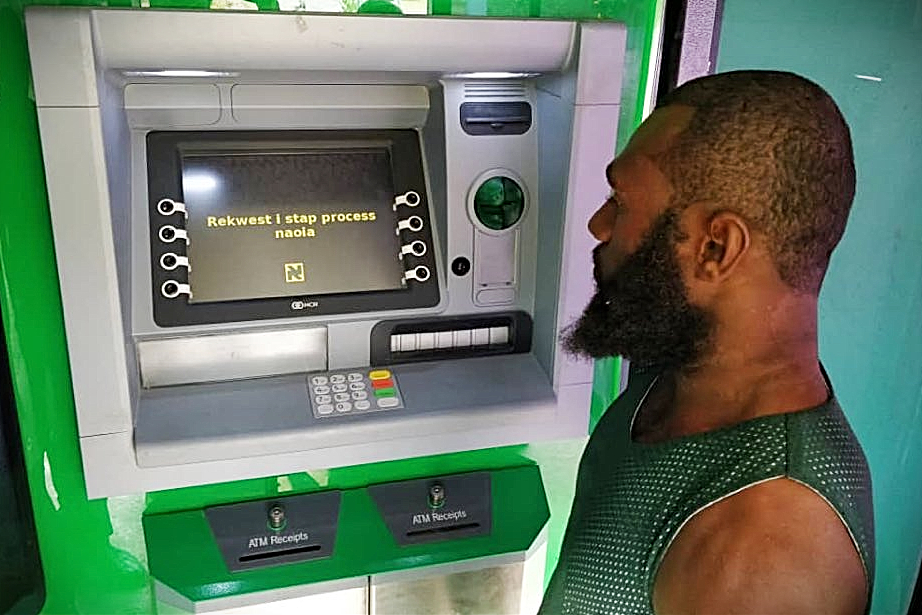Richard Butler | Pacific Office in Fiji | Aug 23rd 2018
Port Vila, Vanuatu – Addressing low usage, cost of travel and lack of opportunities to transact, the National Bank of Vanuatu (NBV) has announced the migration of close to 30,000 of its rural customers from a legacy paper-based passbook system to electronic and mobile banking.
The United Nation’s Pacific Financial Inclusion Programme (PFIP), through funding from the Governments of Australia and New Zealand, is working with NBV to launch a tablet-based transaction platform that will vastly reduce transaction time and costs. The project is also expected to add 14,200 new customers to the NBV client base, of which 50% will be women.
NBV Chief Operating Officer Stuart Mathison said NBV has opened thousands of rural accounts over the years but noted that many of these new customers never transacted again after their initial deposit due to the cost of banking. The advantage of this new transaction platform is that it can be used in areas with limited or no mobile network coverage and at the same time it will allow customers to make transactions in real-time.
“With the upgraded transaction platform, our staff will be able to open accounts, issue debit cards, subscribe customers to mobile banking and provide real-time services in remote and rural parts of Vanuatu, which will reduce the cost of banking for our customers and give them greater opportunities to transact,” he said.
PFIP Programme Manager Bram Peters said that with a mobile penetration rate of 45%, and limited digital financial services available in the market, the NBV project will tap into this opportunity and directly addresses financial inclusion for ni-Vanuatu.
“Access to critical financial services still remains a problem throughout the Pacific. Access to these services will make a difference in the daily lives of many ni-Vanuatu. They will be able to securely store their money, save for health, education and access forms of credit that they didn’t have before,” he said.
With a total of 27 branches, NBV is currently the only commercial bank in Vanuatu with physical branches outside the urban centers of Port Vila, Luganville, Lenakel and Lakatoro. Using a hub and spoke model, NBV will initially begin the electronic migration process at four small branches linked to four larger branches in the following locations:
- Port Vila and Emua (Efate)
- Luganville and Port Olry (Espirito Santo)
- Lenakel and White Sands (Tanna)
- Lakatoro and Lamap (Malekula)
To ensure proper usage and adoption, NBV will provide support for customers in terms of financial literacy training on the use of electronic and mobile platforms. NBV says it will also install new ATMs at Emua, Port Olry, Lenakel and Lakatoro branches to give its customers additional access and will deploy microfinance officers to surrounding communities near its branches to facilitate customer transactions.
The full migration process is expected to take about 18 months.
About PFIP
PFIP is a Pacific-wide programme that has helped 1.98 million low-income Pacific islanders gain access to financial services and financial education. It achieves these results by funding innovation with financial services and delivery channels, supporting policy and regulatory initiatives, and empowering consumers.
PFIP operates from the UNDP Pacific Office in Suva, Fiji and has offices in Papua New Guinea, Samoa and Solomon Islands. It is jointly administered by the UN Capital Development Fund (UNCDF) and the United Nations Development Programme (UNDP) and receives funding from the Australian Government, the European Union and the New Zealand Government.






